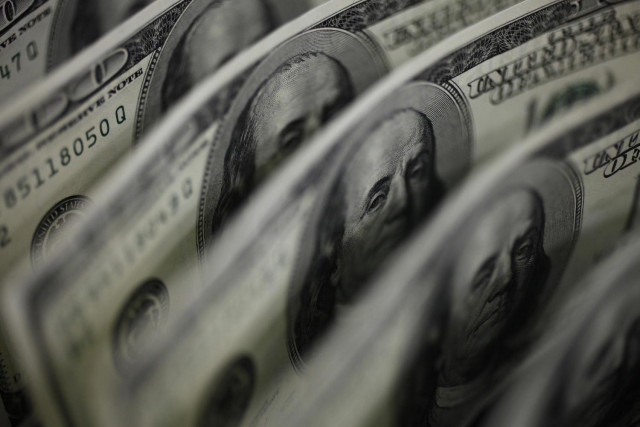Stabilising economy: Broken promises and unachieved goals
Investment fails to pick up; exports turn negative, industries run at 60% of capacity due to crippling energy crisis

PHOTO: REUTERS
At the dawn of 2014 the federal cabinet had assembled at the Prime Minister’s office for a presentation on the state of the country’s ailing economy. An upbeat finance minister was making promises to implement a well-structured economic policy to put the country on road to sustainable development.
The year has ended and the results are out. Despite having immense political capital to take much-needed painful decisions, 2014 appeared yet another year of broken promises and unfulfilled targets.

On January 1, while speaking at a special cabinet meeting, Finance Minister Ishaq Dar had spilled the beans about the government’s future roadmap for the country. He had promised that economic growth rate would be reasonably good, investment would pick, savings would grow, the country would get rid of menace of circular debt and duration of power outages would be significantly curtailed.
He had also pledged that the foreign exchange reserves would increase to $16.1 billion. The $800 million that Etisalat owes on account of privatisation proceeds of the PTCL would be in state’s coffers much before December 31, 2014. Dar had promised to restore the lost credibility of Pakistan Bureau of Statistics, broaden the tax base besides transparency and meritocracy in economic affairs.
Outcomes
Dar has been spending most of his time in dealing with economic and political issues. But most of his time is being consumed by ‘firefighting’ and there has been no strategic approach to address grave economic issues. The ‘firefighting’ approach means addressing the issues only on a short-term basis. An economic problem that the government addressed in one quarter resurfaced in the next quarter.
The only outstanding achievement was keeping the budget deficit within the targeted levels. But it has been done at expense of curtailed development spending. Inflation barometer fell to 11 years low of 3.96% as of November.
However, the Index is highly controversial, as it is not capturing increase in electricity prices implemented through various surcharges. This year power tariffs were increased at least 7.9% through equalisation surcharges, which have not been taken into account while measuring pace of increase in prices.

Dar had promised to enhance the foreign exchange reserves to $16.021 billion by December 31. There was hope that the reserves would be built by a combination of non-debt creating and debt-creating instruments. But the government’s focus remained on expensive foreign borrowings. Still it remained short of the goal by $1 billion and the reserves stood at $15.1 billion at the end of the year.
The investment did not pick. The exports have turned negative even though Pakistan enjoys duty-free access to European markets. Due to crippling energy shortages, the industry is running at 60% of its capacity.
Dar had promised to the cabinet that the Pakistan Bureau of Statistics would give quarterly economic growth figures – a commitment that remained unfulfilled after the real GDP fell short of target. There were no meaningful efforts to address poverty and unemployment, as there was a clear disconnect between the finance ministry and the ministry of planning, development and reforms.
The JICA’s $2 billion funding for Karachi Circular Railways could not be obtained. The prime minister’s tax incentive scheme failed to trigger momentum as the scheme was seen as an attempt for whitening ill-gotten money. Instead of broadening the tax base, it actually shrank in 2014.
The Economic Coordination Committee of the Cabinet was used as a political tool to serve the vested interests. The latest decision of the ECC to give Rs10 per kilogramme subsidy to sugar cartels on export of sugar is one such example. An amount of Rs6.5 billion from the national coffer will go into the pockets of those millers who export sugar. Members of the ruling party are said to benefit the most from the scheme.
Power shortage reached 6,000MW and the masses dealt with 12 to 16 hours of daily load-shedding. Even in winters, cities are subjected to daily outages of eight hours. The circular debt that the government cleared after assuming power has again piled up, standing at around Rs300 billion. Some IPPs served notices to call sovereign guarantees. The cost for each day of delay payment is around 13%.
The investor’s confidence index that had substantially boosted after the government assumed power has again started slipping. In words of IMF, the “competing political priorities surface [and] there are renewed pressures to put off politically sensitive reforms”.
Published in The Express Tribune, January 1st, 2014.



















COMMENTS
Comments are moderated and generally will be posted if they are on-topic and not abusive.
For more information, please see our Comments FAQ